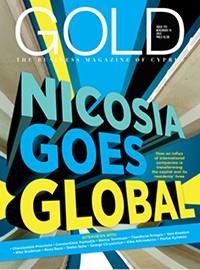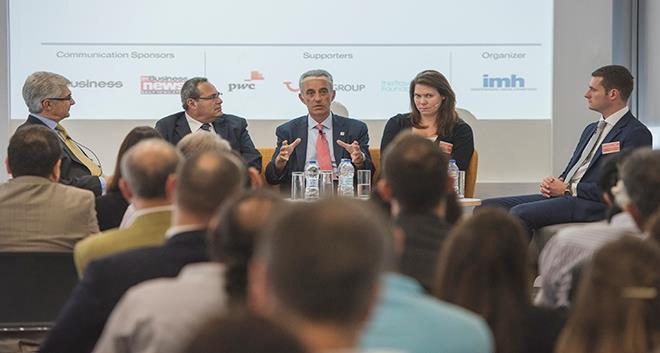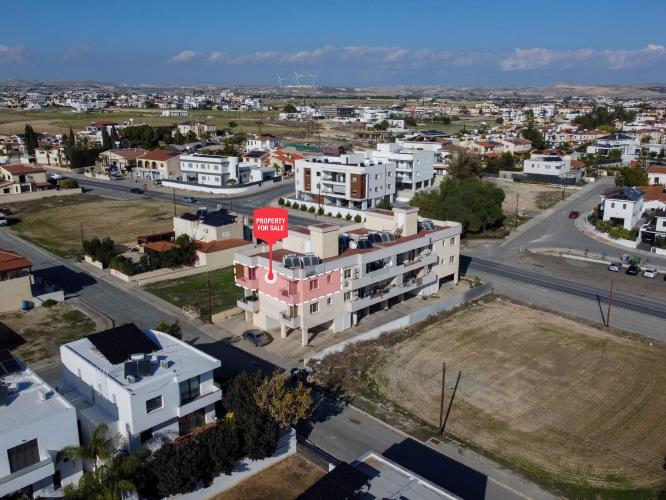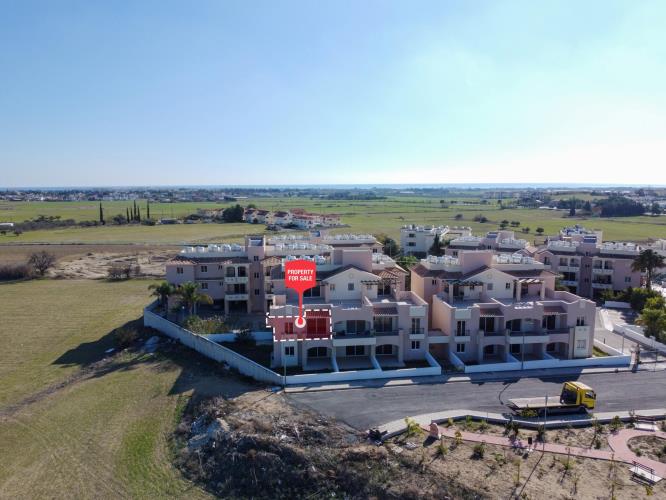Experts and executives from Cyprus and abroad discussed and exchanged views on tourism at “Measuring Tourism’s Impact: A Pilot Study in Cyprus” event at the PwC headquarters in Nicosia, on October 15. The discussion focused on a study conducted by PwC and The Travel Foundation which evaluates the economic, tax, social and environmental impact of tourism in Cyprus.
Following welcoming addresses made by PwC Cyprus CEO Evgenios C. Evgeniou, the Global Sustainability Leader at PwC, Malcolm Preston, presented the results of the study. According to Preston, the positive economic and tax benefits to Cyprus from Cyprus represent approximately €84 per client, per night and exceed the negative environmental (-€4) and social (- €0.2) costs. Preston further pointed out that these figures concern only the year 2013 and do not take into account the construction cost of hotels.
According to the study, greenhouse gases constitute the most significant environmental cost that is estimated at €2.50 per customer. The repercussions of greenhouse gas emissions are more than double if flights to and from Cyprus are also included.
Professional training, as a social benefit, is estimated at €6.47 per overnight stay, which demonstrates the importance of the tourism sector in developing skills among Cypriot employees, particularly because of the current state of the Cyprus economy.
Placing students in the workplace in cases where work experience constitutes a precondition to acquire a degree is the biggest social impact per person (€8,800 per student). However, the study notes that the relatively small general impact was mainly the result of the small number of Cypriot students who are integrated into the employment programmes of each hotel.
The study, carried out in Cyprus for the first time, measured and evaluated the impact of 60,000 tourists, clients of the travel firm TUI at eight hotels in Cyprus in 2013, using the “Total Impact Measurement and Management” (TIMM) methodology of PwC.
This method also covers the wider repercussions resulting from the supply chain, as well as the expenditure of clients and employees, which when combined almost always exceed the direct impact of hotels.
Senior Sustainable Product Manager Tom Johnston, Sustainability Planning and Communications Manager of the TUI Group Kylie Bowen and Chief Executive of the Travel Foundation, Salli Felton, commented on the study pointing out that it is a significant piece of work which can facilitate understanding of the tourist sector.
The event concluded with a panel discussion moderated by Petrakis C. Petrakis (Partner, in charge of Hospitality & Leisure Group, PwC Cyprus) with a panel comprising Angelos Loizou (President of the Board of Directors of Cyprus Tourism Association), Malcolm Preston, Tom Johnston, Kylie Bowen and Salli Felton.
The event was organised by IMH and supported by PwC, TUI Group and the Travel Foundation.
To view the full study, visit: http://www.pwc.com.cy/cyprus-tourism-impact
Following welcoming addresses made by PwC Cyprus CEO Evgenios C. Evgeniou, the Global Sustainability Leader at PwC, Malcolm Preston, presented the results of the study. According to Preston, the positive economic and tax benefits to Cyprus from Cyprus represent approximately €84 per client, per night and exceed the negative environmental (-€4) and social (- €0.2) costs. Preston further pointed out that these figures concern only the year 2013 and do not take into account the construction cost of hotels.
According to the study, greenhouse gases constitute the most significant environmental cost that is estimated at €2.50 per customer. The repercussions of greenhouse gas emissions are more than double if flights to and from Cyprus are also included.
Professional training, as a social benefit, is estimated at €6.47 per overnight stay, which demonstrates the importance of the tourism sector in developing skills among Cypriot employees, particularly because of the current state of the Cyprus economy.
Placing students in the workplace in cases where work experience constitutes a precondition to acquire a degree is the biggest social impact per person (€8,800 per student). However, the study notes that the relatively small general impact was mainly the result of the small number of Cypriot students who are integrated into the employment programmes of each hotel.
The study, carried out in Cyprus for the first time, measured and evaluated the impact of 60,000 tourists, clients of the travel firm TUI at eight hotels in Cyprus in 2013, using the “Total Impact Measurement and Management” (TIMM) methodology of PwC.
This method also covers the wider repercussions resulting from the supply chain, as well as the expenditure of clients and employees, which when combined almost always exceed the direct impact of hotels.
Senior Sustainable Product Manager Tom Johnston, Sustainability Planning and Communications Manager of the TUI Group Kylie Bowen and Chief Executive of the Travel Foundation, Salli Felton, commented on the study pointing out that it is a significant piece of work which can facilitate understanding of the tourist sector.
The event concluded with a panel discussion moderated by Petrakis C. Petrakis (Partner, in charge of Hospitality & Leisure Group, PwC Cyprus) with a panel comprising Angelos Loizou (President of the Board of Directors of Cyprus Tourism Association), Malcolm Preston, Tom Johnston, Kylie Bowen and Salli Felton.
The event was organised by IMH and supported by PwC, TUI Group and the Travel Foundation.
To view the full study, visit: http://www.pwc.com.cy/cyprus-tourism-impact
















